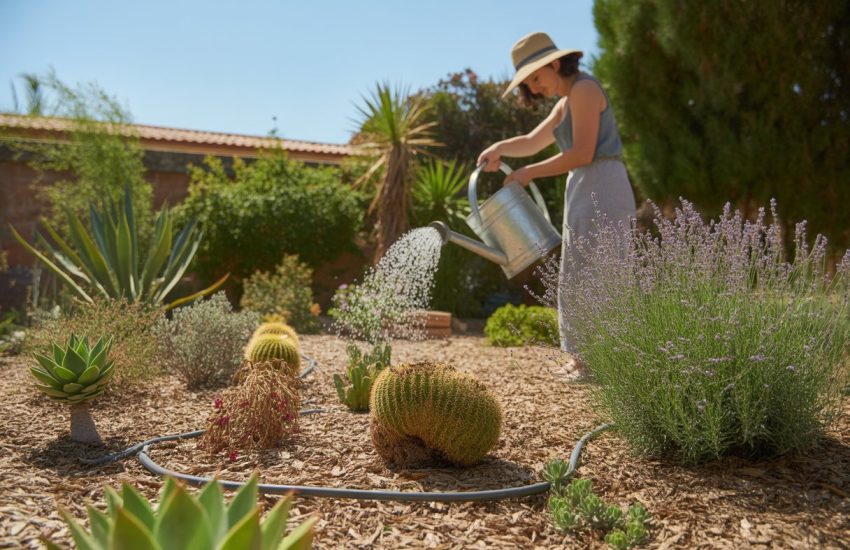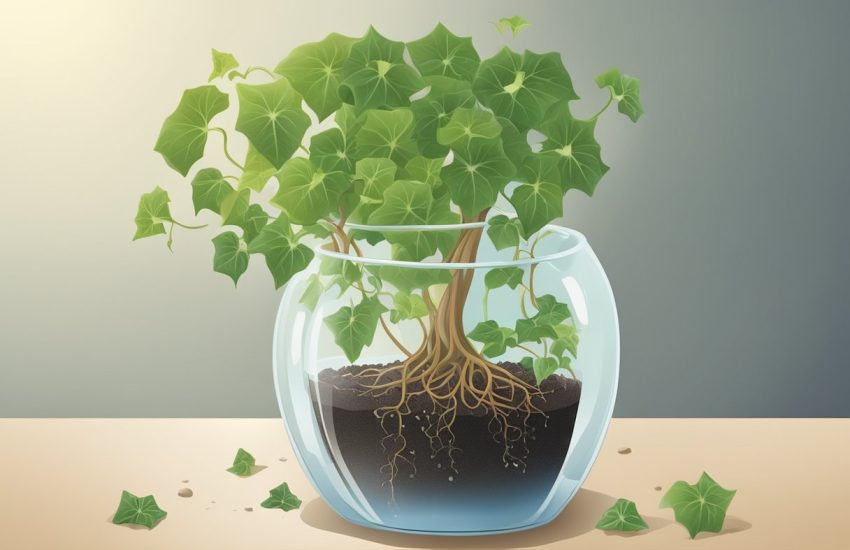Best Compost Materials for New Hampshire: Top Choices for Optimal Soil Health
Last updated: January 30, 2026
Composting just makes sense for gardeners in New Hampshire who want to boost their soil naturally. Picking the right mix of materials really matters if you want that rich, crumbly compost that works with the region’s weather and plants.
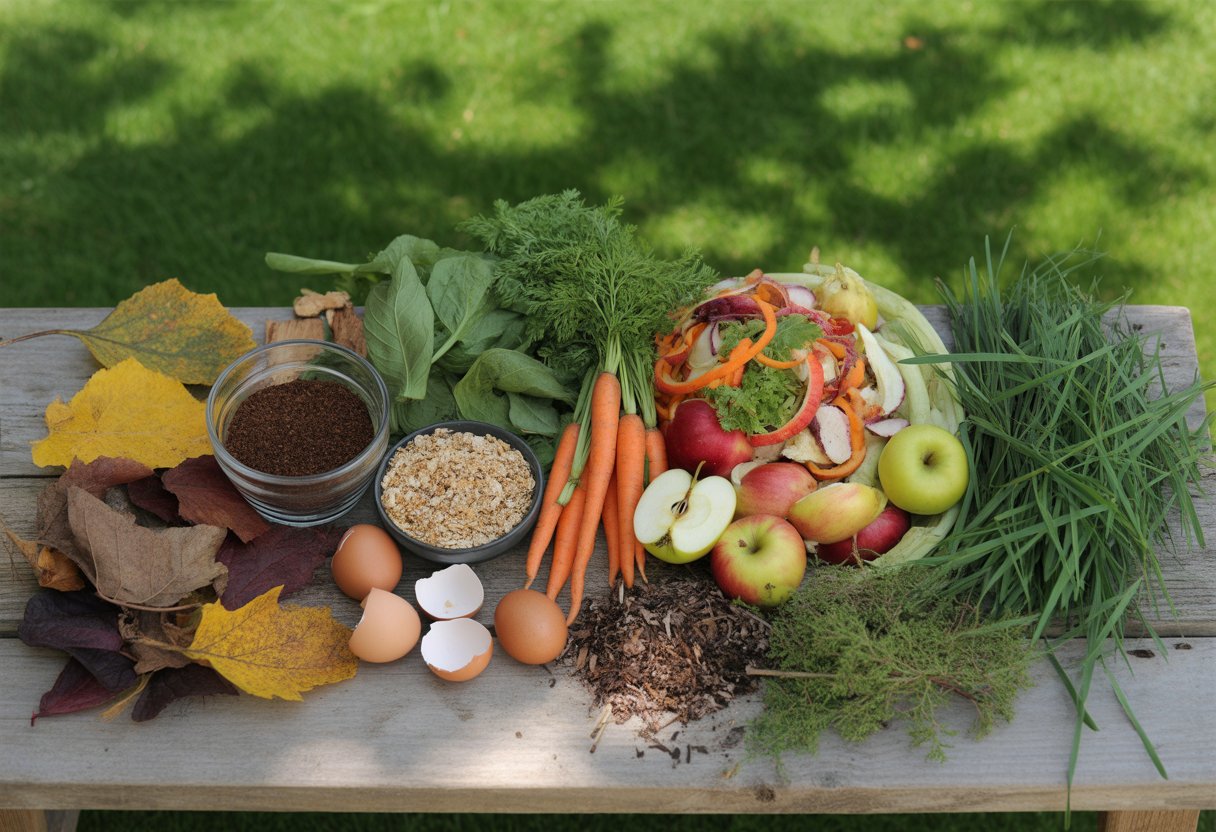
The best compost materials for New Hampshire usually include a balanced combo of green wastes like vegetable scraps, coffee grounds, and grass clippings, plus brown stuff such as dry leaves, straw, and shredded paper. This mix helps everything break down right and gives you compost that really works for local gardens.
It’s smart to think about what’s available in each season, since New Hampshire winters can really slow things down. Using local organic waste keeps your composting cycle going, even when it’s chilly outside.
Essential Compost Materials for New Hampshire Gardens
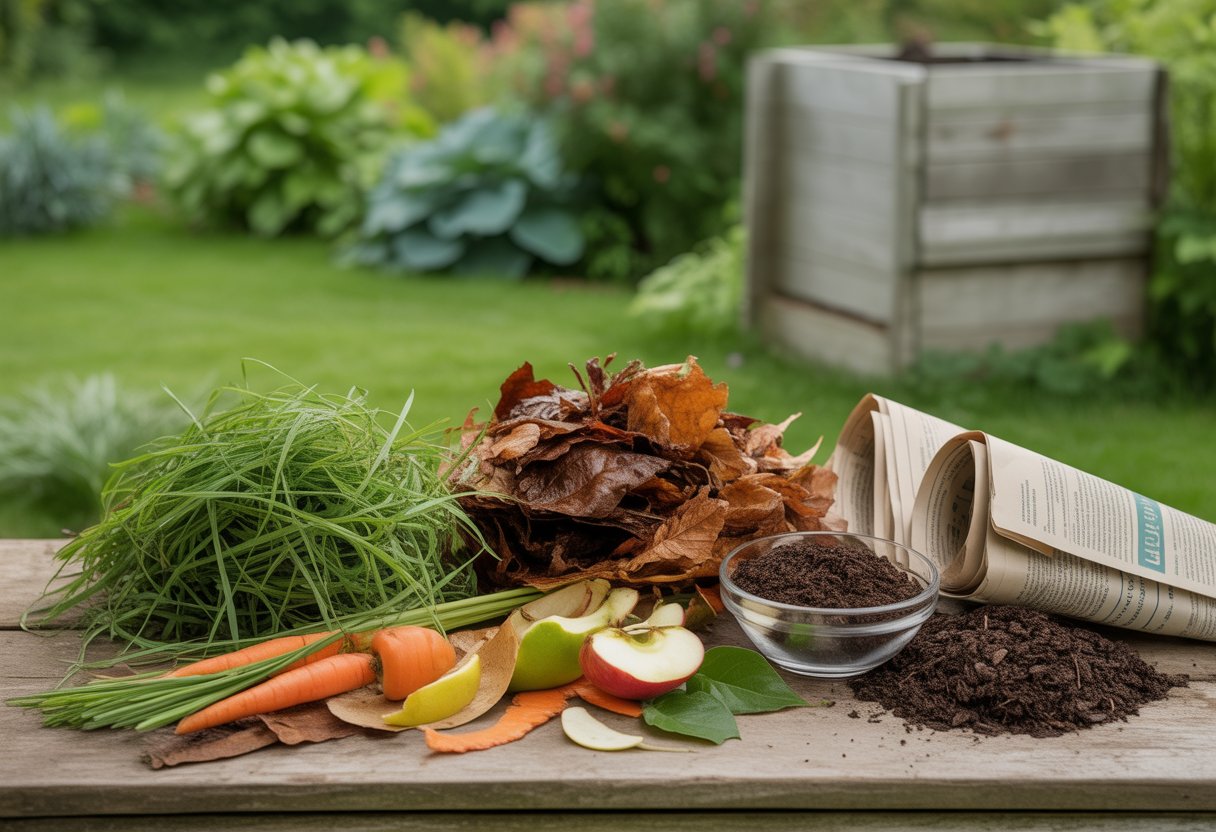
If you want compost that supports New Hampshire’s soil and weather, you’ll need to choose your organic matter carefully. A good mix of nitrogen-rich and carbon-rich ingredients creates nutrient-rich compost that works for veggies, fruits, or flowers.
Best Greens: Food Scraps, Grass Clippings, and Manure
Greens bring nitrogen, which microbes crave. Toss in kitchen scraps—fruit peels, veggie trimmings, all that stuff you’d usually throw away. Fresh grass clippings work too, but don’t pile them on thick or they’ll just clump up and get slimy.
Manure’s another winner, especially cow manure, since it packs nutrients and encourages good microbes. If you’ve got worm castings, sprinkle some in for a little nitrogen and a microbial boost, but don’t overdo it.
Top Browns: Leaves, Paper, and Mulch Sources
Browns give carbon, which compost microbes need for energy. Fallen leaves are everywhere in New Hampshire come fall—grab ’em, dry ’em, and save them for your pile.
Shredded paper fills in when you’re low on leaves, but skip anything glossy or with bright ink. Wood chips and bark mulch slow things down but add structure and keep air flowing.
Dry browns help keep bad smells away and balance moisture. That’s honestly half the battle.
Balancing Carbon and Nitrogen for Effective Compost
You want a carbon-to-nitrogen ratio (C) close to 30:1. That’s what keeps things breaking down without getting stinky or bogged down.
Try about three parts browns to one part greens, by volume. Too much green? You’ll notice ammonia smells and a soggy mess. Too many browns? The pile just sits there.
Turn your pile every week or two. That mixes things up, brings in air, and helps everything break down faster.
Optimizing Soil Health with Compost in New Hampshire
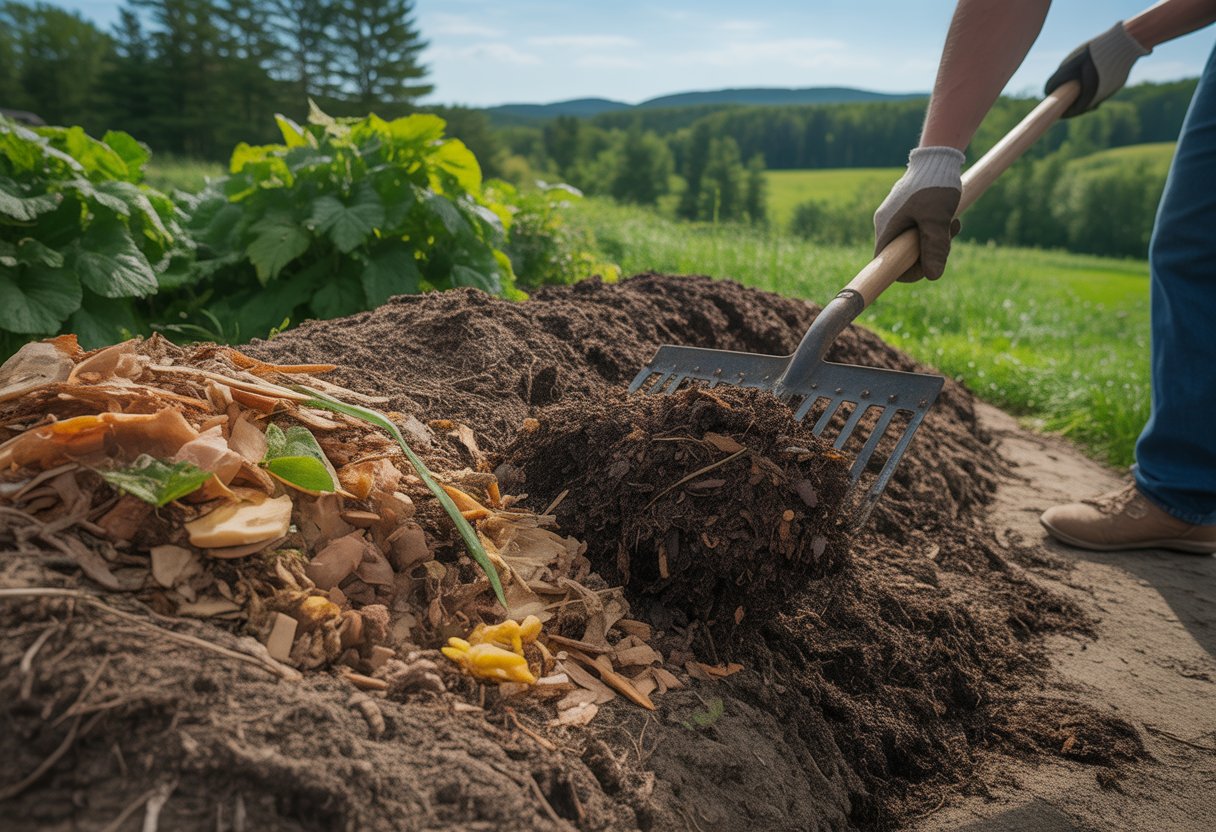
Compost really changes the game for soil texture, nutrients, and water retention in New Hampshire gardens. The right type of compost can help both sandy and clay soils, and it just makes plants happier. If you’re deciding between natural and chemical fertilizers, consider how each affects soil biology and long-term health.
Adapting Compost for Sandy and Clay Soils
Sandy soils drain fast and lose nutrients. Compost, especially from leaves, grass, or kitchen scraps, helps sandy soil hang onto water and nutrients longer.
Clay soil’s a different beast—dense, heavy, and kind of suffocating for roots. Mix in compost to break up the clumps and let air in. Well-rotted manure or leaf mold works wonders in clay.
Run a soil test before you plant. That way, you’ll know what kind of compost and how much to use. Tweaking your approach helps avoid washing nutrients out of sandy soil or drowning roots in clay.
Enhancing Nutrient Content: Potassium, Phosphorus, and Micronutrients
Potassium and phosphorus matter for root growth and flowers. Compost usually has some, but New Hampshire soils can be all over the place.
If you want more phosphorus and potassium, try adding bone meal or wood ash to your compost. Tossing in a variety of kitchen scraps and yard waste also brings in micronutrients like iron or zinc.
Test your soil every now and then with a soil kit. That’ll tell you if you need to add anything else. A good nutrient balance means you won’t need much synthetic fertilizer.
Natural Fertilizers vs. Chemical Fertilizers in Local Gardening
Compost-based fertilizers do more than just feed your plants—they build up the soil and boost good microbes. They release nutrients slowly, so you’re less likely to overdo it.
Chemical fertilizers can give plants a quick hit, but sometimes at a cost. They might mess with soil biology or cause compaction if you use them too much. Plus, nutrients can wash away before plants even get a chance to use them.
If you stick with compost and test your soil here and there, you’ll end up with healthier dirt and sturdier plants—at least, that’s what most local gardeners find.
Local Composting Tips and Proven Additives
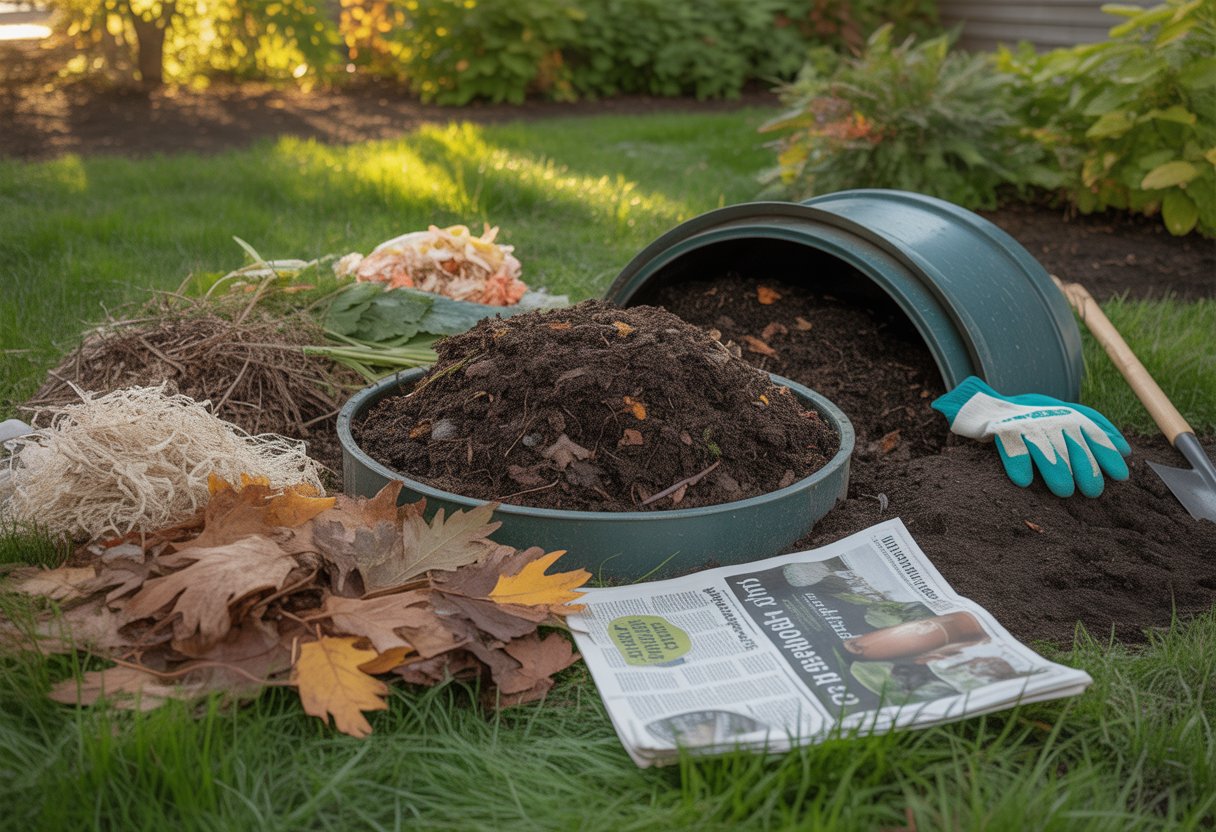
Composting in New Hampshire goes smoother if you pay attention to your materials, keep moisture right, and use the right tools. Some folks swear by additives like bone meal and kelp meal for a nutrient boost. Aeration and moisture control keep things from going sour. And honestly, a good compost bin in the right spot makes life easier.
Common Additives: Bone Meal, Kelp Meal, and Processed Forest Products
Bone meal brings phosphorus and calcium, both important for roots and plant health. A lot of gardeners add it to compost, especially for potted plants or when repotting.
Kelp meal’s great for trace minerals and even has natural growth hormones. It also helps compost hold onto moisture a little better.
Shredded bark or wood chips add carbon and keep the pile fluffy. They balance out all those kitchen scraps and stop the pile from getting too dense.
Moisture Control and Aeration for Healthy Compost
Aim for moisture around 40-60%. Too wet? Things get smelly and gross. Too dry? Nothing happens.
Add dry materials like leaves or wood chips if things get soggy. Turn the pile every week or two to get air in there and keep microbes happy.
A spray bottle or watering can with a nozzle helps you moisten things without flooding the pile. If you’re struggling with dryness, kelp meal can help the compost hold water just a bit longer.
Composting Tools and Safety: Gloves, Storage, and Lighting
Garden gloves keep your hands safe from sharp debris and whatever else might be lurking in the pile. They’re a must when you’re turning or handling compost—no one wants a surprise scratch.
Put your compost bins somewhere with good light, but skip the spots that get blasted by direct sun all day. If you can find partial shade near your home or garden, that’s usually the sweet spot.
If you’re working on your compost early in the morning or after dinner, decent lighting makes a big difference. It’s just easier to spot problems and avoid accidents when you can actually see what you’re doing.
![]() Looking for a nursery that carries native plants in New Hampshire?
Looking for a nursery that carries native plants in New Hampshire?
Browse our native plant nursery directory: New Hampshire

